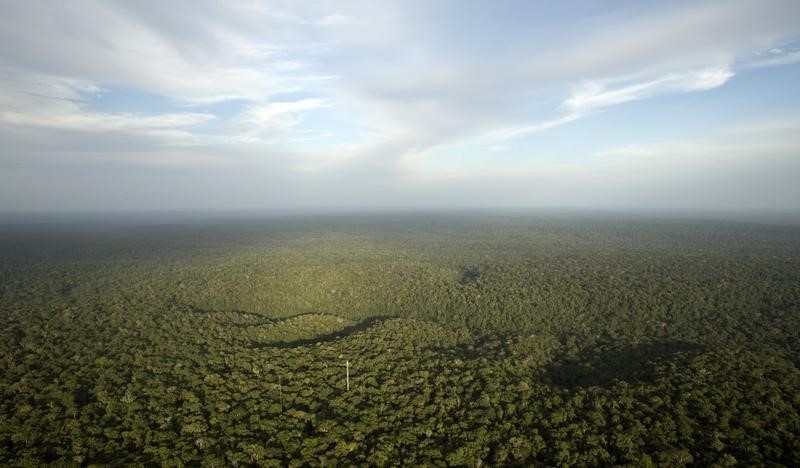* Bougainville Island lifts decades old ban on new mining
* Area is rich in reserves of iron ore, copper
* In past, province roiled by conflict over giant copper mine
* Some locals unwilling to give up agrarian lifestyle (Recasts; adds comment, detail)
By James Regan Benjamin Weir
SYDNEY, May 2 (Reuters) - An autonomous area of Papua New Guinea scarred by a violent history of exploiting its vast mineral resources has lifted a 40-year-old ban on new mining, looking to start churning out iron ore and copper to ship to key metals markets like China.
Bougainville Island was roiled by a bloody secessionist conflict that lasted over a decade from the late 1980s, fired by a campaign of sabotage by landowners angry about the distribution of benefits from the giant Panguna copper mine.
That mine has remained closed since then, with Rio Tinto RIO.AX RIO.L relinquishing ownership last year, while mining elsewhere on the island has been banned since the 1970s due to concerns over revenue-sharing and potential environmental damage. have learnt our lessons from the Panguna experience and now we have the opportunity to do a better job," Bougainville president John Momis said in a statement on Sunday.
"I invite and welcome applications from prospective applicants to invest in our mining sector," he said, without specifying why the ban had been lifted now.
Scrapping the ban allows for applications to mine in the iron ore rich areas of Tore, Isina and Jaba, but does not include Panguna, one of the world's largest copper mines.
It comes as the island creeps towards an independence referendum by mid-2020 that could cut the last ties with the national government.
Developing new mines would offer a chunky injection of foreign revenue into one of the poorest communities in the Southern Hemisphere, but could meet with stiff opposition from islanders reluctant to shed an agrarian lifestyle.
"We have seen a recognition among landowners that the revenue from mining can often be less than expected and employment opportunities limited," said Luke Fletcher, director of the Jubilee Australia Research Centre, which advises Bougainville landowners.
The Bougainville uprising was the longest running conflict in the Pacific, with the central government at one point deploying mercenaries to try to end the fighting.
Bougainville Copper Company BOC.AX , which now controls Panguna and is listed on the Australian Securities Exchange, has been working separately with landowners to put together a plan to eventually rework the mine.
The company could not be reached for comment on the switch in government mining policy.
SERIOUS BUSINESS
Momis said that only serious investors should apply for mining rights - but that could take time.
Bougainville legislation is unique in that it recognises the ownership of mineral resources by the customary owners of the land. That puts 95 percent of property in Bougainville in the hands of small tribal clans, which must be consulted and compensated before tractors are brought in.
"This could delay the process, so it is a bit unclear if the serious majors will come in under such a regime or are we going to have fringe players of the mining world?" said Anthony Regan, who advises the Bougainville government on constitutional issues.
Several mining companies, including Australia-based Fortescue Metals Group FMG.AX and BHP Billiton BHP.AX BLT.L , did not immediately respond when contacted by Reuters to gauge interest in investing in Bougainville.
